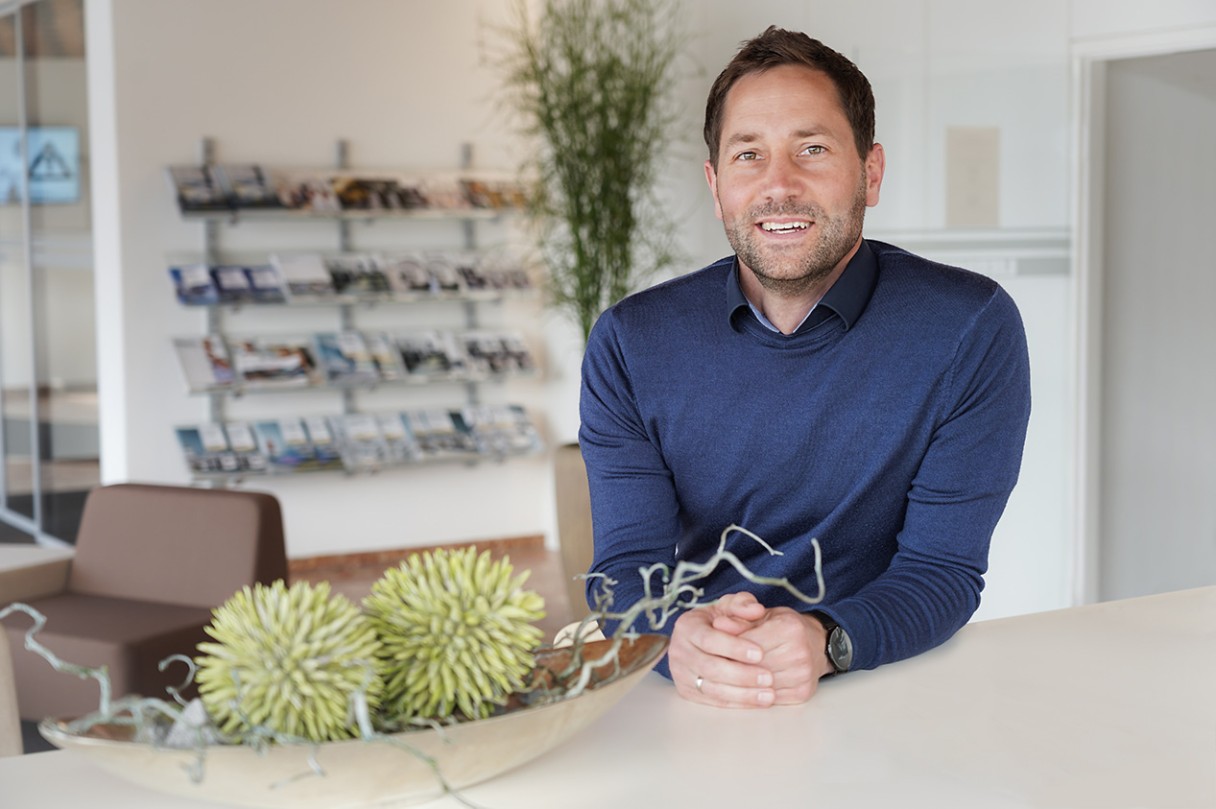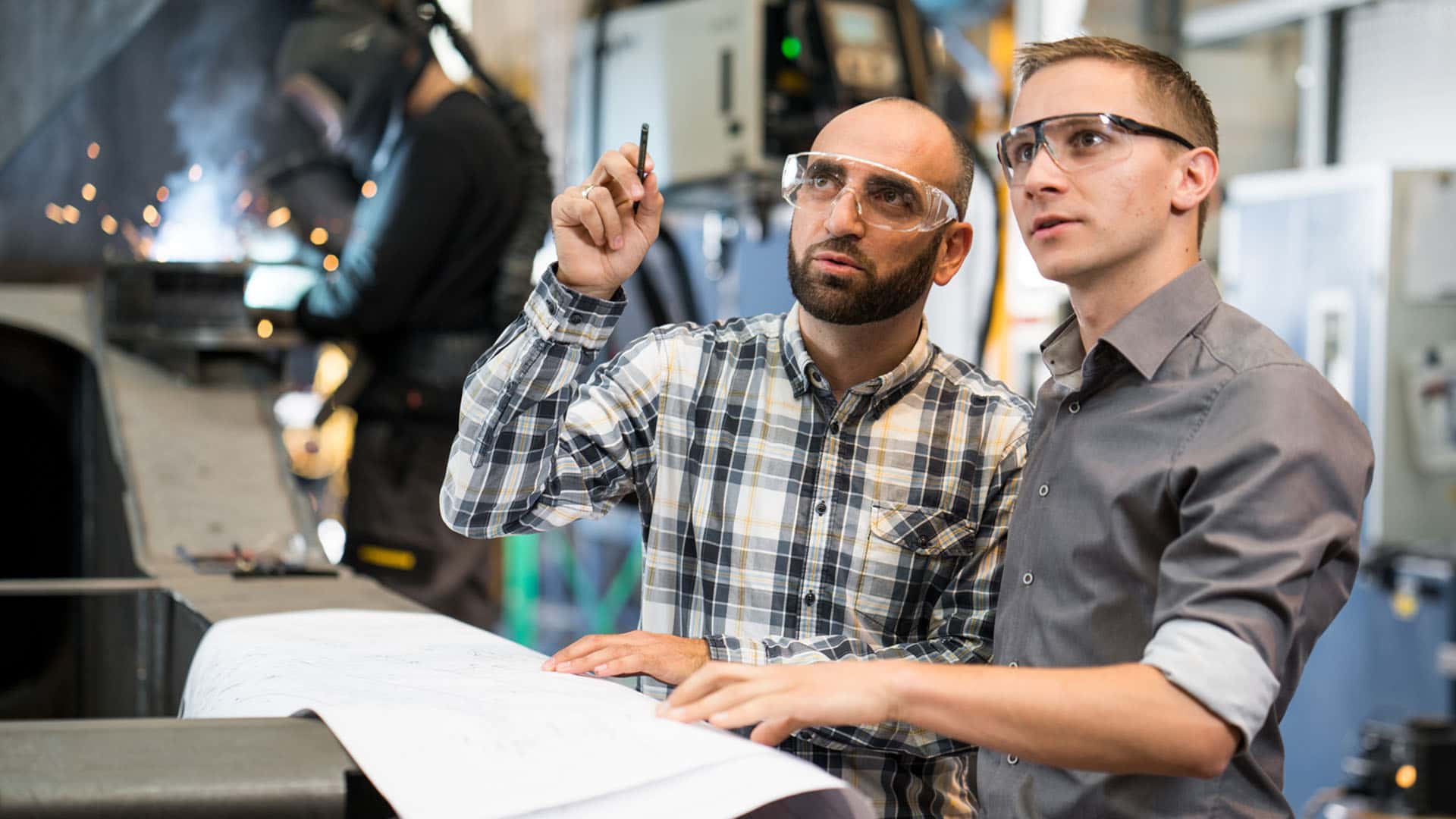
Mr. Schuon, you have headed the Digital Solutions department since November 2021. Why was the new department established?
The topic of digitalization in itself is, of course, nothing new and one I have already dealt with when working for the Preliminary Design / IIoT department, albeit with a sole focus on the machine tools area. The other product areas of our company have also worked with it independently. However, because it is such an important issue for our customers and part of our strategy, general management has pushed us to look at it across all product areas and pool key resources. Part of our team is therefore made up of experts from each of our business units – gear cutting machines & measuring technology, gear cutting tools and automation.
What are currently your main tasks in building the department and developing digital products?
First, of course, it was important to put together a qualified team. We did not want to rely solely on new employees from outside the company. We have been able to acquire a large proportion of the team members from other areas in the company. For example, our Data Analyst comes from the Mathematics department. For our customers, this means that their points of contact are already familiar with their machining processes, technologies and products. The problems and challenges in the areas are already known and the team knows where they need to focus their attention.
In addition, we decided that a cross-divisional digitalization strategy and alignment was of critical importance. Although it is a new department, we are not starting from scratch. Thanks to successful product launches with different data profiles, networking of machines and systems, as well as data visualization and data evaluation in our LHWebPlatform, we have created a good basis. The task is now to include the products of automation, tools, and measuring technology in order to utilize the full potential of all areas and of our customers' production.
LHWebPlatform - the basis for your digitization projects
Liebherr offers a modular system of data profiles, interfaces and the various apps of the LHWebPlatform. These building stones create the basis for tailor-made digitization solutions - perfectly fitted to the needs of the customer. The spectrum of applications ranges from simple monitoring tasks to far-reaching industry 4.0 scenarios – such as process logging, manufacturing analysis and production optimization.
Can you give us some insight into the further development of the products and the involvement of the business units?
We can already aggregate a lot of data and visualize it for our customers in ready-made, data-based reports, for example, in LHReportInfo. We will dig deeper into the analysis of the data to add the most value to the data for our customers. In the future, in addition to the gear cutting machines, the automation systems and the measuring machines will also be connected to our dashboards.
As already mentioned, our team consists of experts from all our business units. The task now is to pool the interdisciplinary knowledge on data analysis and turn it into algorithms. We can then build on this in further analysis products and assistance systems. In addition, we will also work with machine learning techniques. There are concrete projects here, for example in image processing, but also goals to use these methods for other things, for example anomaly detection.
What is the biggest challenge for you in developing digital products?
Our customers have many specific requirements. It is difficult to cover individual customer specifications with a standard product. However, a project-specific new development would be too time-consuming and thus too cost-intensive. We have succeeded in making our existing products as modular as possible, so that our customers can choose from a platform of products and thus configure their customized digitalization solution. This also allows not only new systems to be digitized in a highly modern way, but also existing production systems to be upgraded.
Increasing connectivity is also accompanied by concerns about IT security. However, acceptance and openness in regard to the exchange of and access to process data and measurement results is steadily growing. Ultimately, this is the only way to exploit the full potential of digital solutions and create real added value.
What do you enjoy most about your job?
For developers, the greatest thing is to participate in future topics and to acquire new areas of expertise. Moving forward instead of rehashing old issues – that excites me every day.
In addition to the actual development tasks, however, colleagues are naturally one of the most decisive factors. My team works extremely well together, is highly motivated and absolutely reliable, and that makes it a pleasure to go to work every day.

You have been loyal to Liebherr for a very long time. What makes working at Liebherr special for you?
The topic of digitalization is strongly supported by the Liebherr family and driven across all divisions. In this area, we often face the same challenges, regardless of the product. Topics like advanced analytics and AI can be difficult to grasp. In our working groups, including our colleagues from other divisions such as construction machinery, aerospace and domestic appliances, we can exchange ideas and have the opportunity to jointly drive forward and elaborate challenging topics. We benefit from the knowledge of other product areas and can incorporate this expertise into our developments.
I also particularly like the fact that Liebherr is a family-owned company that nevertheless operates on a global scale. Being part of a large corporation offers me global perspectives and a certain amount of freedom in developing products.


